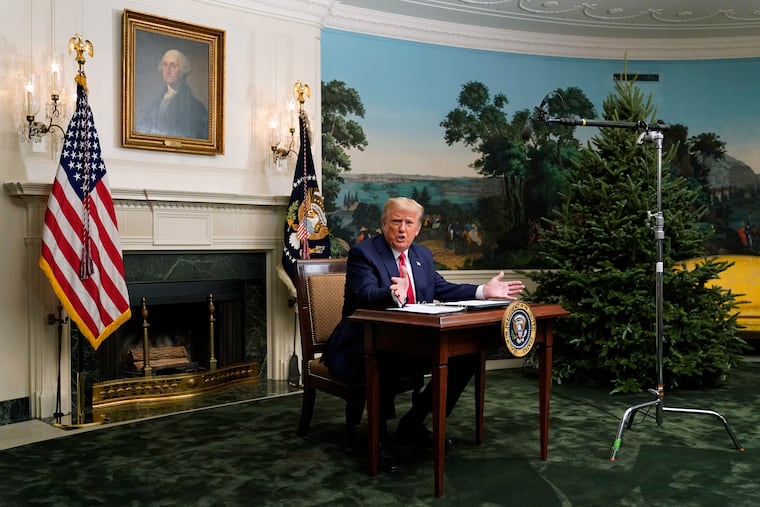Trump officials move to relax rules on killing birds
The Trump administration published an analysis Friday finding that its rule easing companies’ liability for killing birds would not cause significant environmental harm.

WASHINGTON — The Trump administration published an analysis Friday finding that its rule easing companies’ liability for killing birds would not cause significant environmental harm, clearing the way for it to finalize a major rollback before the president’s term ends on Jan. 20.
The administration, which is racing to lock in a series of regulatory changes before President-elect Joe Biden takes office, can now publish a final rule modifying the U.S. Fish and Wildlife Service's interpretation of the 1918 Migratory Bird Treaty Act as soon as Dec. 28. For three years, officials at the Interior Department have sought to shield energy companies, construction firms, and land developers from prosecution if their operations 'incidentally" kill birds, weakening protections under the law.
The new analysis suggests that all three alternatives — including codifying the administration's narrower interpretation into law or returning to the historic definition that holds firms liable for accidental bird deaths — will "have incremental effects on current environmental conditions." It identifies scaling back the rule as its "preferred alternative," and says including accidental deaths "would be inconsistent with the Department's current view of the law."
The analysis suggests, however, that finalizing the rule would likely have "negative effects" on migratory birds because industry would have less of an incentive to adopt precautions to prevent birds from becoming ensnared in development projects.
In August a federal judge struck down its first attempt to weaken the rule, a Dec. 22, 2017 solicitor's opinion, as illegal. Referring to Harper Lee's famous novel, U.S. District Judge Valerie Caproni wrote, "It is not only a sin to kill a mockingbird, it is also a crime... But if the Department of the Interior has its way, many mockingbirds and other migratory birds that delight people and support ecosystems throughout the country will be killed without legal consequence."
Trump administration officials argue that the previous legal interpretation of the century-old law — which makes it illegal to "pursue, hunt, take, [or] capture" migratory birds without a permit — was too broad. Under a Jan. 10, 2017 Interior solicitor's opinion, companies could be held liable for birds ensnared by uncovered oil-waste pits or unmarked transmission lines. And for decades prosecutors have sought fines of up to $15,000 per bird for accidental deaths.
BP pleaded guilty to one misdemeanor count of violating the Act in connection to the 2010 Deepwater Horizon explosion, which killed hundreds of thousands of birds, and as part of the settlement paid $100 million to fund wetlands restoration in the United States.
» READ MORE: Federal appeals court rejects appeal of Trump’s last significant suit challenging Pa. election
Under Interior’s proposed rule, companies and individuals would not face prosecution if they “incidentally” killed birds — even scores of them — in the course of their operations.
Environmentalists decried the move as legally flawed, and argued the rule would undermine industry's incentive to take precautions that could avoid needless bird deaths. Former Interior officials from both parties, who have served under the past eight presidents, have urged the administration not to change the law's interpretation.
"This is another step by the U.S. Fish and Wildlife to jam through a rule to cement an interpretation of the Migratory Bird Treaty Act that a federal court has already declared illegal," said Defenders of Wildlife President and CEO Jamie Rappaport Clark. "At a time when North America has already lost 3 billion birds, the rule will further undercut our nation's ability to conserve birds so many people care about deeply."
While a legal opinion can be reversed with the stroke of a pen under a new administration, a final rule can take years to undo. But Eric Glitzenstein, litigation director for the advocacy group Center for Biological Diversity, said in an email that he was confident his organization and others could overturn it in court if the agency issues it before Biden takes office.
“The rule will inevitably meet the same fate as the illegal opinion on which it is based,” Glitzenstein said.